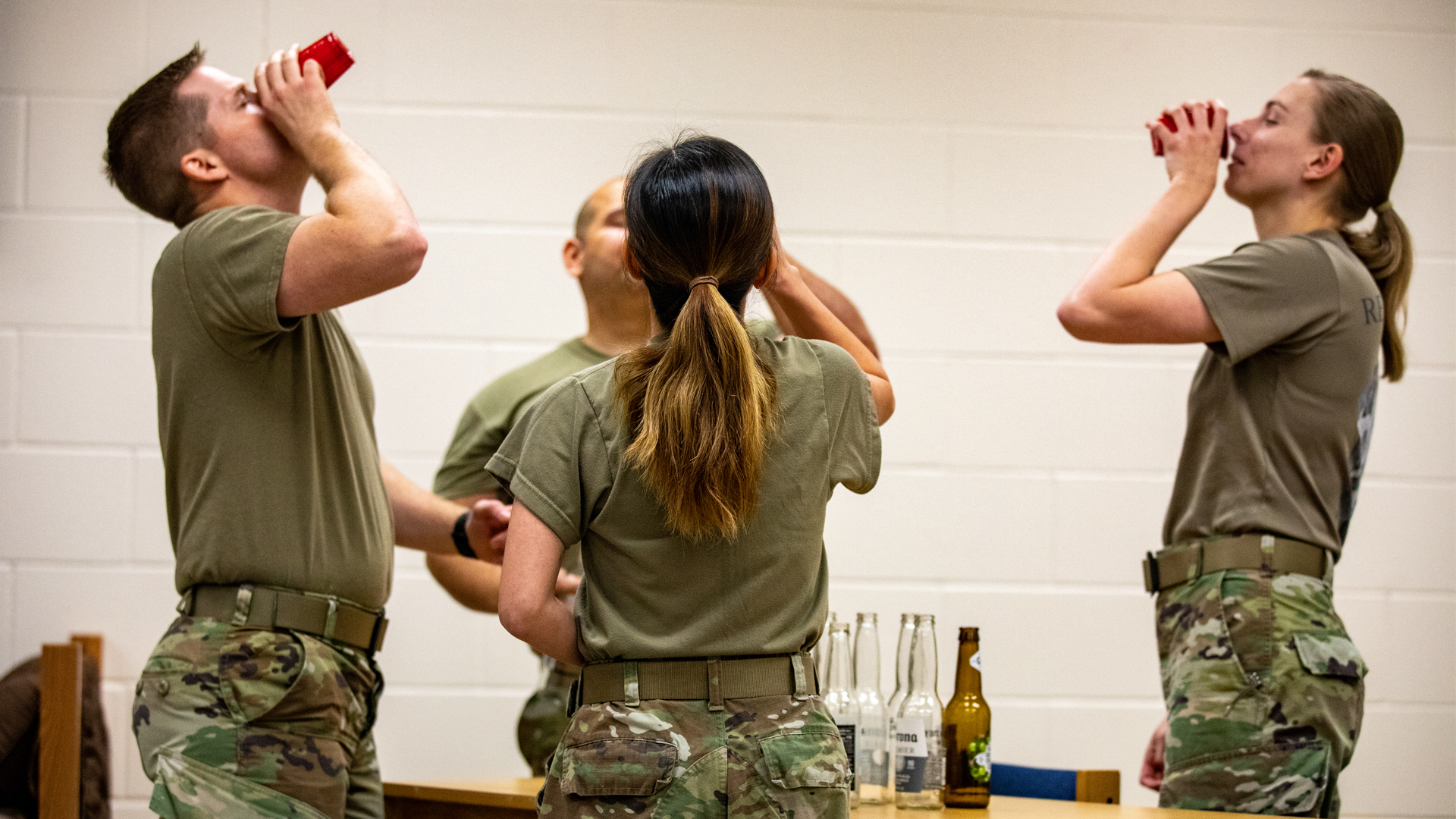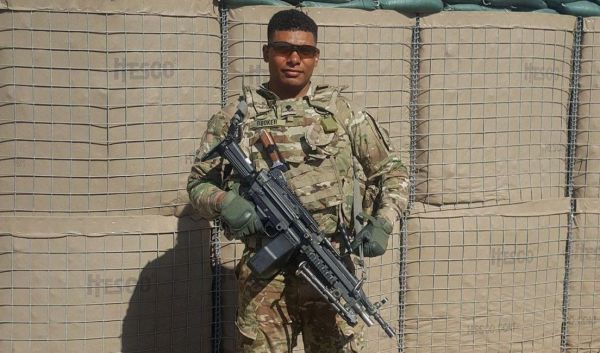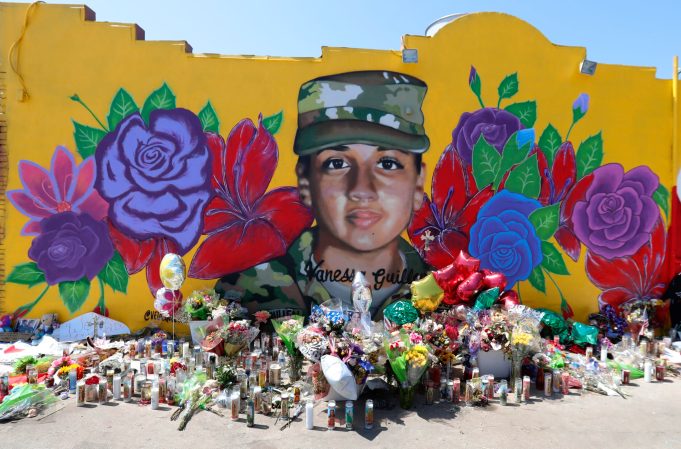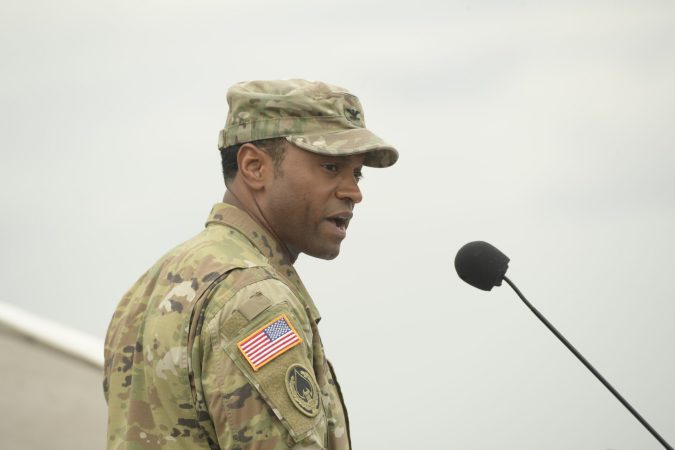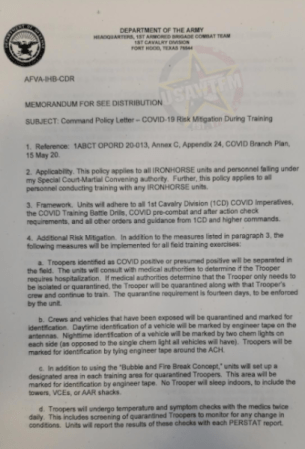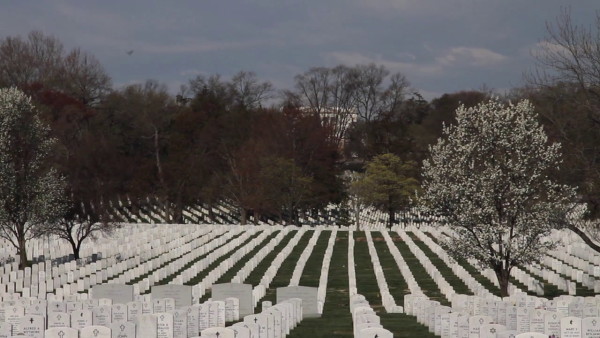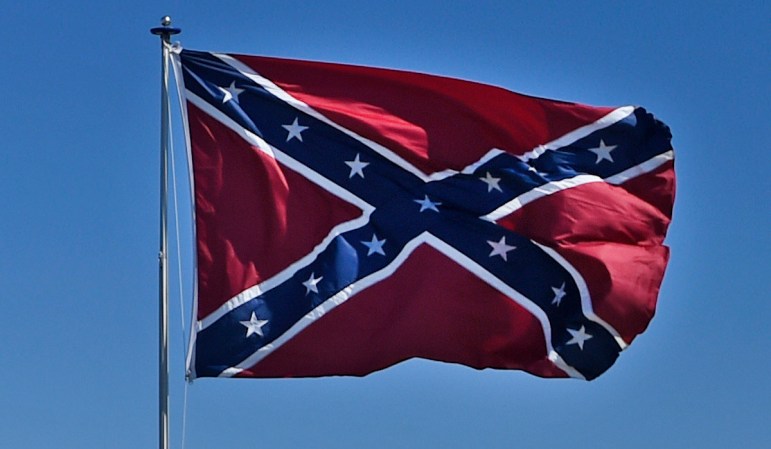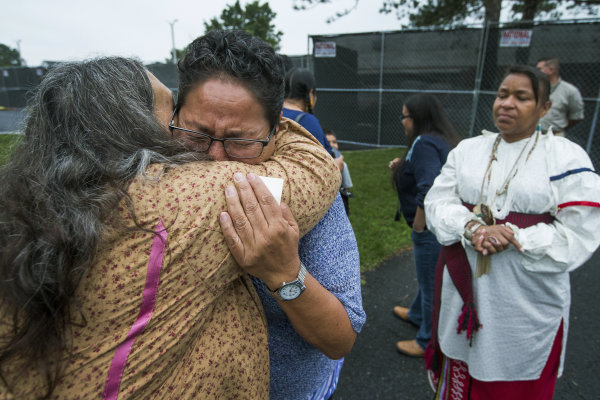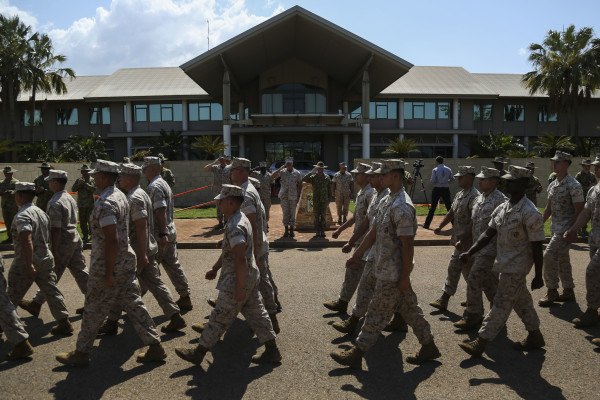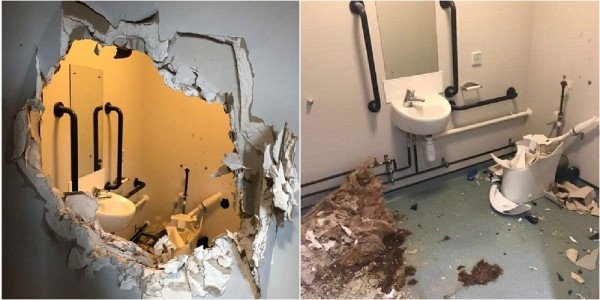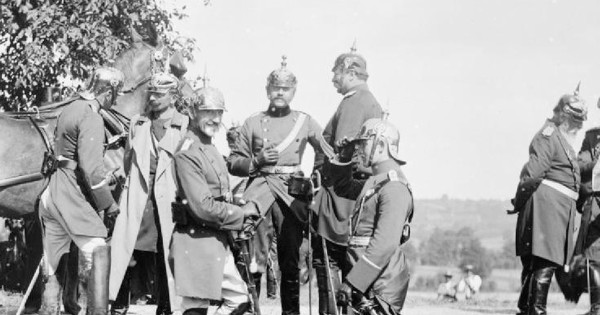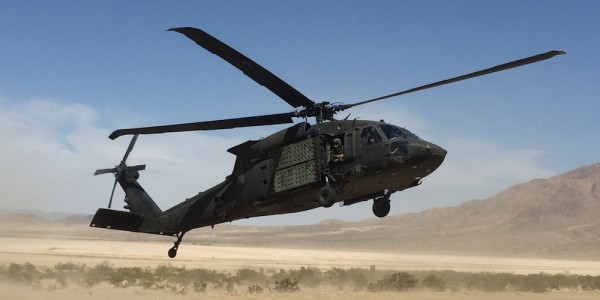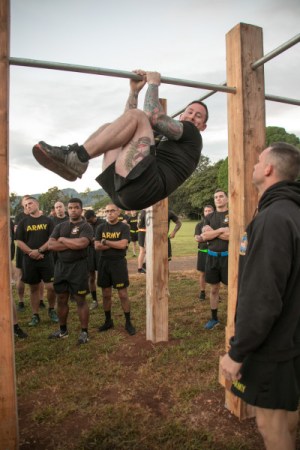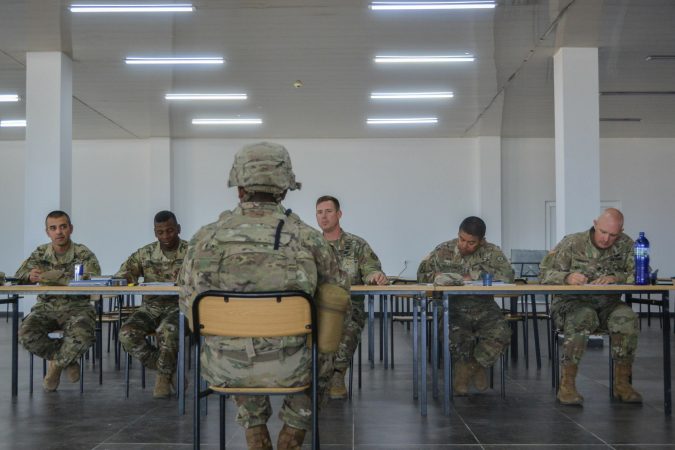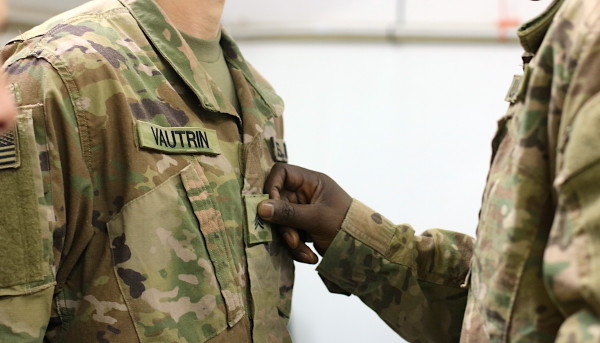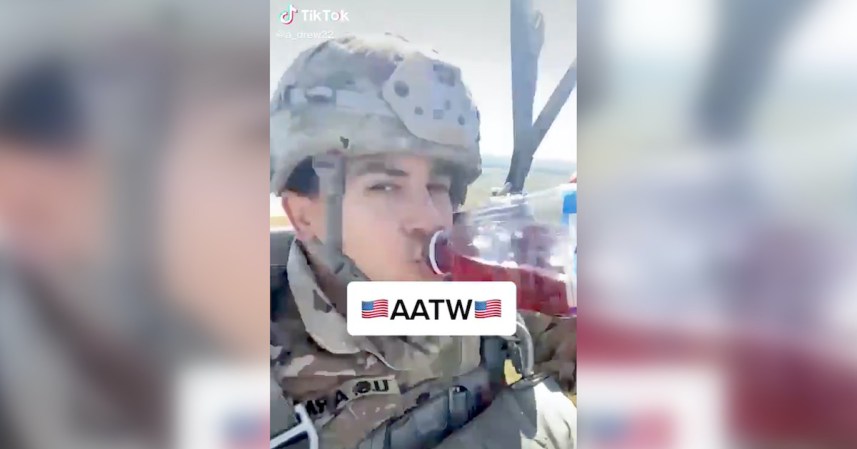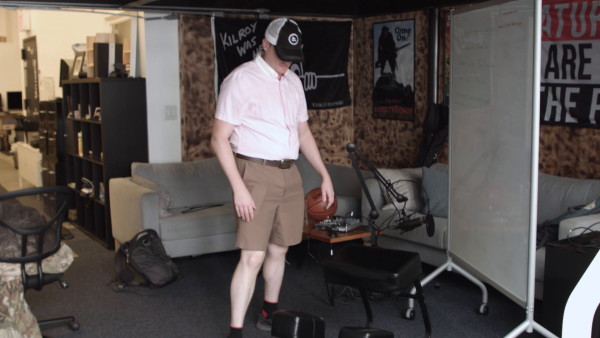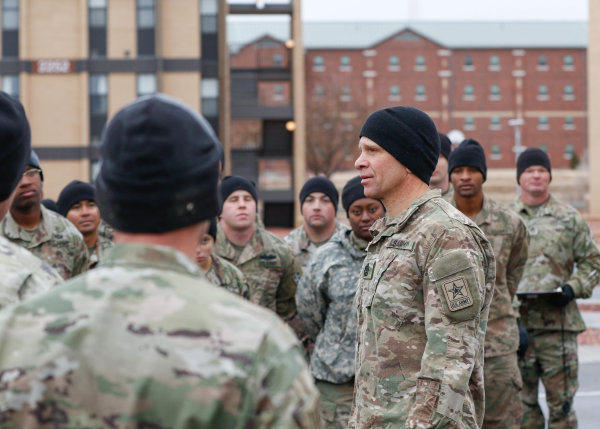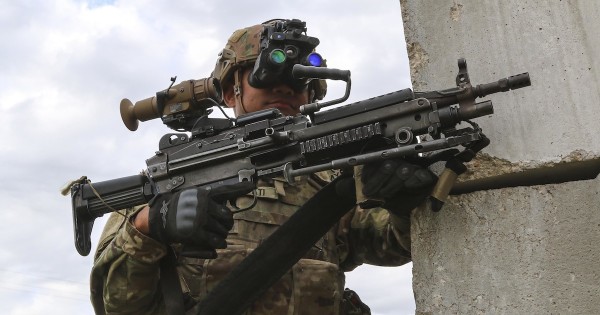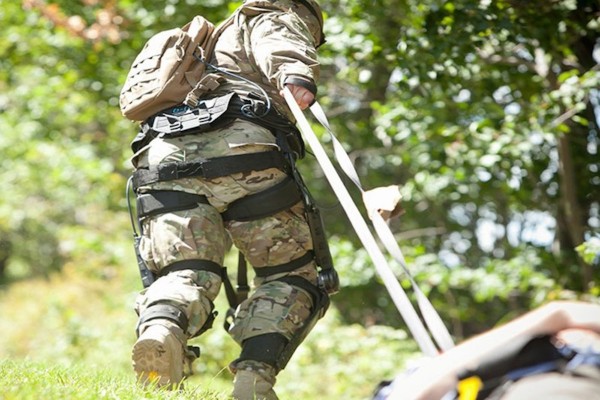In a move that would no doubt be celebrated by soldiers everywhere, the Army is considering removing alcohol restrictions from the barracks.
The idea was discussed at a recent summit of Army sergeants major in El Paso, Texas, where the service’s enlisted leaders looked at new ways to deal with old problems. It first surfaced online after Sgt. Maj. of the Army Michael Grinston’s staff posted on the unofficial Army Reddit, asking for insight and ideas for the summit. One of the topics of conversation on the Reddit post, and during the summit, was creating a positive alcohol culture in the Army, which many of the services senior enlisted leaders said needed to be worked on.
“The intent, first right off the bat, was [to] ask ourselves ‘do we have the right culture that we want in the Army for alcohol?’” Grinston told Task & Purpose last week. “I think that was a fair question, and I think the majority of the individuals said ‘yes, we need to take this on and do something about it.’”
It was decided after the summit that one unit within Army Forces Command, which hasn’t yet been identified, would be the guinea pig for the new approach.

Grinston said one of the first things that came up when examining the question of alcohol culture was whether restricting alcohol in the barracks was feeding into that negative culture. It was “an interesting way to look at it,” he said. While policies vary by installation, some restrictions are limited to either one 12-pack of beer, two 750ml bottles of wine, or one 750ml bottle of liquor per soldier in their barracks room.
Subscribe to Task & Purpose Today. Get the latest in military news, entertainment, and gear in your inbox daily.
Those existing restrictions, however, haven’t cut down on alcohol misuse in the military. A study published this year by Sage Journals and shared by the RAND Corporation said “binge and heavy drinking represents a serious threat to force readiness” across the military. But the study also pointed out some key aspects of “alcohol culture,” namely that coworkers can view drinking together as “a way to bond and build group cohesion.” The study also examined a previous report on the alcohol culture among college athletes and their coaches — when the coaches are seen as approaching alcohol with a sense of “concerned communication,” which is when they create an open culture for discussions about alcohol, college athletes “reported less overall alcohol use and heavy episodic drinking.”
“Enforcement had no significant association with alcohol consumption,” the report said.
Grinston said on Friday that he was viewing removing restrictions as an idea in line with a book the sergeants major summit talked about last year: Upstream, by Dan Heath. The idea of the book is to look at solving problems before they happen.

“The upstream of this is ‘do we have the alcohol culture right in the Army?’ The downstream is, when you look at suicide, how many people were drinking before they picked up the gun? When you look at a sexual assault, how many people had drank in excess before the sexual assault?” Grinston said. “So going back to last year’s theme of Upstream, and then fast forward to this year, when we look at a lot of our suicides and sexual assaults, they have alcohol. So that leads to, ‘if we do better with responsible drinking, will we have fewer suicides and sexual assaults?’”
Command Sgt. Maj. Raymond Quitugua Jr., the senior enlisted leader of the Army Chemical Corps at Fort Leavenworth, Kansas, told Stars and Stripes that lifting alcohol restrictions really could lead to fewer discipline problems.
“Soldiers are saying, ‘because I know I can only keep this amount of alcohol in my barracks, when I’m at the bar I will drink as much as I can as fast as I can because I can’t continue to drink at my barracks because you just don’t want me to have enough in there,’” Quitugua told Stars and Stripes. Not to mention the double standard of allowing soldiers who live off-post to be restriction-free.
“The only change is somebody has a dependent, which allows them to live off post, while others don’t,” he told Stripes.
The idea around alcohol restriction in the barracks is reminiscent of an idea from U.S. Forces Korea in 2019, which proposed ending a midnight curfew for service members. U.S. Forces Korea leaders used a 90-day trial run to see if service members could handle a curfew-free existence in South Korea, in an attempt to make the posting more attractive for future assignments. Ultimately, it was decided that the curfew would be tossed.

While the intent behind the change to alcohol restrictions may be different from that in Korea, they both seem to boil down to: what would happen if we trusted our troops to be responsible?
Grinston said the Army officials taking the lead on figuring out which unit would test the new policy and for how long, will come back later this month with a plan at the monthly summit held between Grinston and the service’s sergeants major. And while removing alcohol restrictions may be what gets the most attention from soldiers, it’s far from the only idea Army leaders came up with in June to confront existing issues facing the service.
They’re exploring the idea of performance-based financial incentives for re-enlisting and giving more days off to the soldiers who do. One working group from the summit is looking at more opportunities for mentorship, specifically among the noncommissioned officer corps. And at Fort Bragg, North Carolina, Command Sgt. Maj. TJ Holland of the 18th Airborne Corps is overseeing a new approach to caring for soldiers who receive in-patient behavioral health care.
Grinston said he was “really proud” of the sergeants major who came to the summit ready to look for innovative ideas for how to tackle difficult issues. Similar to the monthly summit Grinston holds with them, they moved away from the typically risk-averse culture of the military, eager to try things to see what happens instead of taking years to study an approach before actually implementing it.

“I think it’s really catching on to bring an idea to the table, let’s test it, and then we can measure it and say who owns it. Then we look at it next month and go oh, that’s getting momentum, maybe we go bigger … So as we grow it at some point, we can go hey we need to do this for the whole Army. And we don’t have to wait two years. And each month we’ll assess, are these things working? Are they not working? Can we go bigger? Or do we need to just get rid of it?” Grinston said.
And is that approach working? Does Grinston believe there are ideas coming out of these monthly meetings that will really make a difference on issues like suicide and sexual assault and harassment?
“Yes,” he said. “Absolutely.”
The latest on Task & Purpose
- Navy Blue Angels had to change their show after jet caused $180,000 in building damage
- The Army is getting leaders ready for a war unlike any the US has ever seen
- We salute this Marine for having a promotion ceremony in the muck
- Navy fires nuclear submarine captain after only 8 months on the job
- A Navy warship burned while commanders argued over who was in charge
Want to write for Task & Purpose? Click here. Or check out the latest stories on our homepage.

